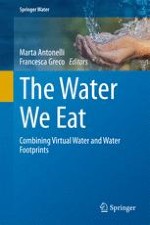2015 | OriginalPaper | Buchkapitel
Virtual Water, H2O and the De-socialisation of Water—A Brief Anthropological Journey
verfasst von : Mauro Van Aken
Erschienen in: The Water We Eat
Aktivieren Sie unsere intelligente Suche, um passende Fachinhalte oder Patente zu finden.
Wählen Sie Textabschnitte aus um mit Künstlicher Intelligenz passenden Patente zu finden. powered by
Markieren Sie Textabschnitte, um KI-gestützt weitere passende Inhalte zu finden. powered by
